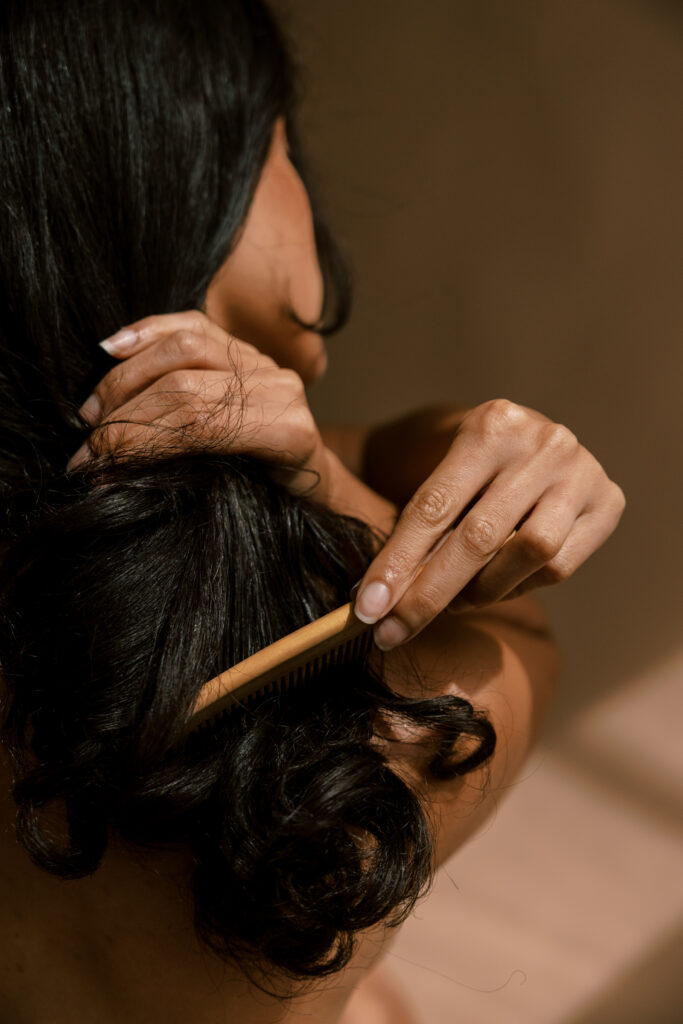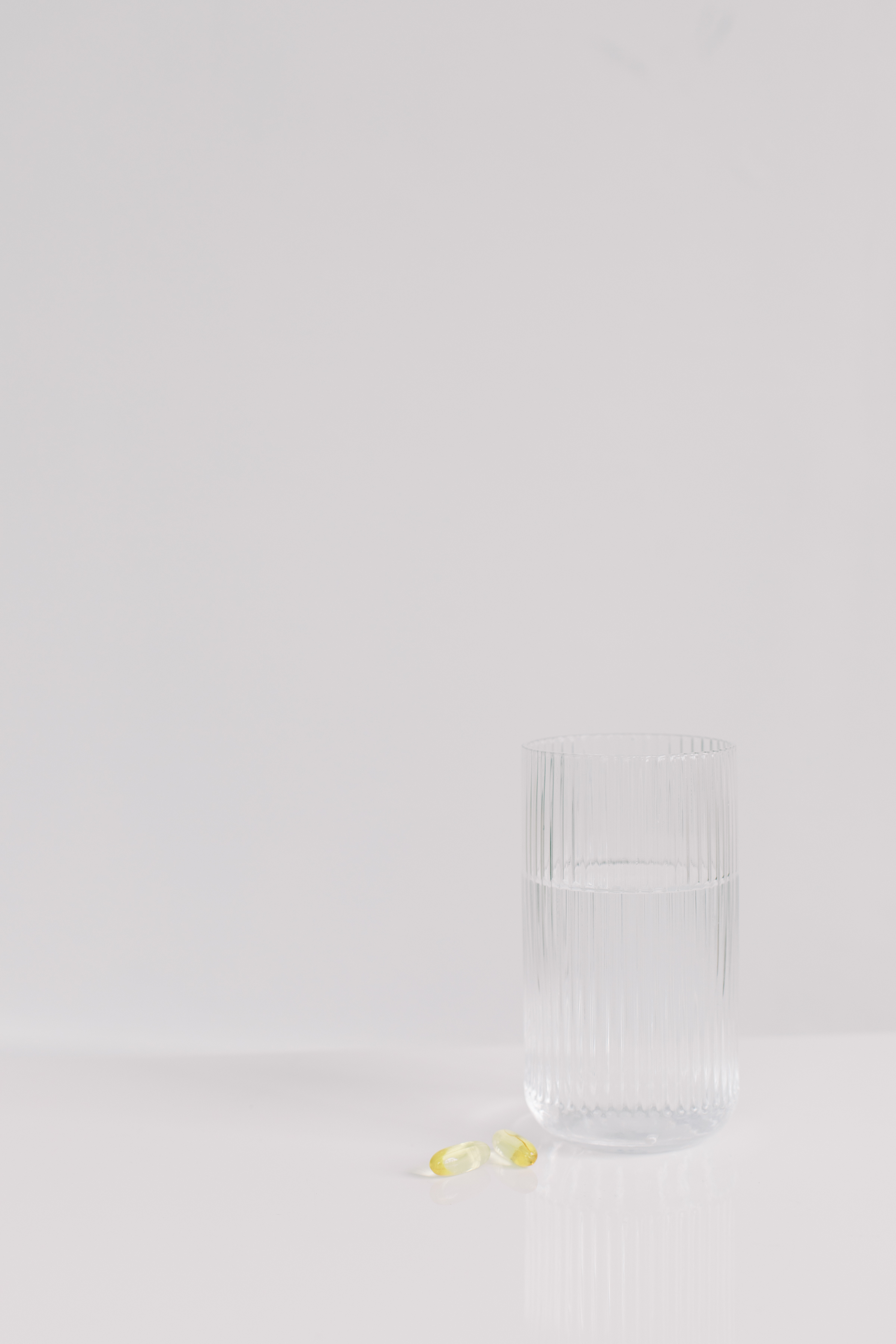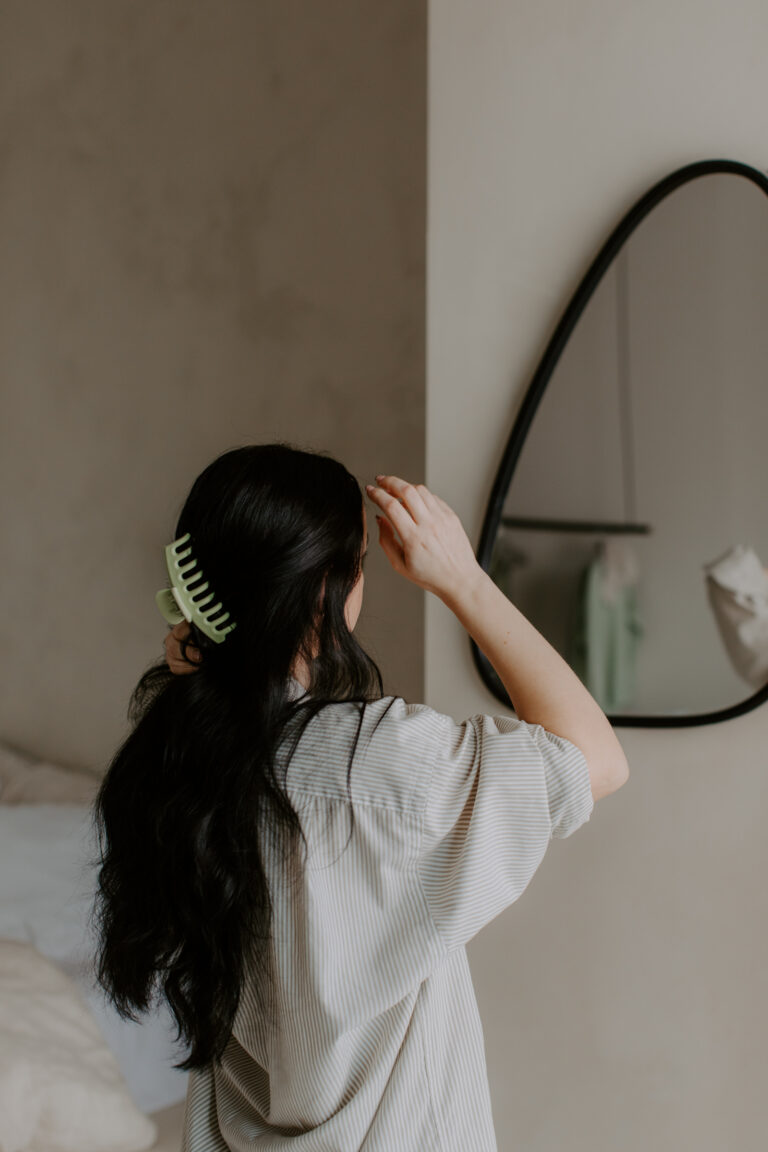Struggling With Hair Loss? Inositol Might Help

Hair loss is one of those things no one really warns you about – especially when you hit your 30s or 40s. It can feel frustrating, confusing, and if we’re being honest, a little confidence-shaking.
However, there may be more you can do than you think. And one supplement gaining real attention lately is inositol.
Let’s talk honestly about what it is, how it works, and whether inositol for hair growth is actually worth trying.
First, What Exactly Is Inositol?
Inositol is a vitamin-like compound (technically a sugar alcohol) that has many benefits and plays a key role in cell function and hormone balance. It’s naturally found in your body and in certain foods like fruits, beans, and grains. But the real buzz around inositol comes from its supplement form – particularly myo-inositol and D-chiro-inositol – which are often used to support hormonal health, including women with PCOS.
And now? It’s gaining attention for its potential to support healthier hair.
So, Can Inositol Actually Help With Hair Loss?
Inositol is great for many things, including reducing belly fat and boosting fertility. If you’re wondering if inositol prevents hair loss, the answer is positive – potentially yes – especially if your hair thinning is linked to hormonal imbalances or insulin resistance.
Here’s how it may help:
Hormonal regulation
Inositol helps balance insulin and reproductive hormones, which can reduce excess androgens (the hormones linked to hair thinning in women).
Reduced inflammation
It may lower internal inflammation, which contributes to hair follicle damage.
Improved nutrient delivery
Better insulin sensitivity means your cells (including hair follicles) get nutrients more efficiently.
What Does the Research Say?
There’s still a lot to learn, but early studies are promising. One study published in Gynecological Endocrinology found that inositol supplementation improved symptoms of PCOS, including hair loss and hirsutism (excess hair in unwanted areas). While the study didn’t focus on inositol for hair growth specifically, hormonal balance plays a huge role in healthy hair.
And there are many testimonials on Reddit where women report decreased shedding and healthier regrowth after a few months of consistent use. Still, more targeted research is needed.

Who Might Benefit From Inositol?
- Women with PCOS or suspected hormonal imbalances
- Those dealing with stress-related hair shedding
- Women in their 30s or 40s noticing more hair on their pillow or in the shower
If your hair loss is tied to hormone disruption, inositol for hair growth may be a helpful, natural support. Always check with your healthcare provider first, especially if you’re on medications or have underlying conditions.
How to Use Inositol for Hair Health
If you’re thinking about trying it, here’s how most women use it:
- Start with 2,000–4,000 mg daily of myo-inositol (often combined with D-chiro-inositol in a 40:1 ratio).
- Take it consistently for at least 3 months to see changes.
- Combine with good nutrition, stress management, and gentle hair care for best results.
Still wondering, can inositol prevent hair loss? The most positive outcomes seem to happen when inositol is part of a bigger hormone-balancing routine, not a standalone fix.
Is Inositol Worth a Try?
If you’re dealing with hormonal hair loss, and you’ve ruled out things like nutrient deficiencies or thyroid issues, inositol for hair growth could be a gentle, low-risk way to support your body from the inside out.
Hair loss isn’t just about vanity. It’s a sign your body might be out of balance. And if something as simple as inositol can help you feel more like yourself again? That’s a win.
You don’t need to just “accept” hair loss in your 30s or 40s. You deserve answers, support, and solutions that work with your body – not against it.





